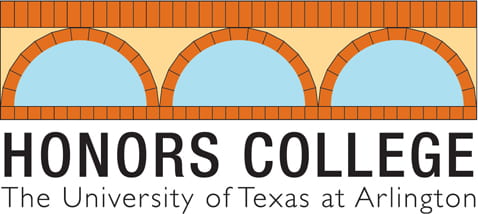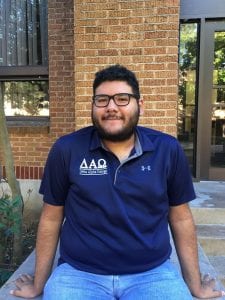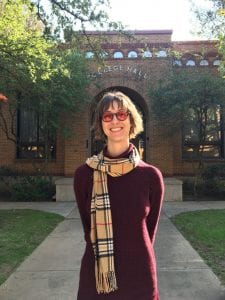Written by Madison Ray
Edited by Tabitha Redder
Some could consider the Honors College a beacon for homeschooled students. That is, staff at the college noted a considerable number of these students concentrated in the Honors College.
There are a few possible explanations for this; the one-on-one professor contracting, the small, intimate classroom size and the community atmosphere might encourage former homeschooled students to pursue academics within the Honors College.
“[Honors students] all seem to be pretty friendly and open,” Johnson said. “The homeschool community is pretty tight, close-knit. We make a lot of good, close friends at the co-ops.”
Homeschooled students and Honors students take classes together within their respective programs, Johnson said.
He was homeschooled from first grade to his senior year of high school and took advantage of dual-credit opportunities in high school.
Another homeschooled student, Benjamin Barnett, shared a comparable experience.
Barnett, an electrical engineering junior, described his role in the Honors College as exerting more effort in academics. He found this to be comparable to his experience in homeschool. In both situations, he strived to excel, and the bar was set high.
He also touched on the one-on-one aspect of contracting within the College. Honors students earn a large portion of their degree through contracting, which allows a student to receive honors credit in a non-honors course. This typically includes a more laborious course load, meetings with the professor and practicing skills that will benefit the student in their Senior Project.
Barnett said his professor has scheduled weekly meetings to accommodate the contracting portion for one of his classes.
“He’s actually been nice enough to set aside an hour every single week that we’ll meet, and we’ll talk about this project,” he said of his professor.
There are also differences between the homeschool experience and university life in the Honors College. Transitioning from a public or private high school campus to university can be a foreign environment to any student, and homeschooled students may experience this to a greater degree.
Mechanical engineering senior Matthew Smith said homeschooling offers flexibility and schedule creativity whereas a university is more concrete.

Mechanical engineering senior Matthew Smith is one of several Honors students who was homeschooled. He said the Honors College reminds him of his homeschool community. Photo courtesy of Matthew Smith.
“In homeschooling, you can completely customize your education to how you want,” he said. “There is a bit more structure in the Honors College and college in general than in homeschooling.”
Smith was homeschooled for most of his K-12 education and said this aided in his academic success.
“My mom had started teaching me really young, so in kindergarten, I was at third and fourth grade reading level, math level,” he said. “It didn’t really make much sense to keep me in school at that point.”
Johnson said the major difference between homeschool and Honors College is the learning style.
“I pretty much taught myself my entire high school career, whereas here, you go to class and they actually read the stuff to you,” he said. “It’s a different learning style.”
These differences between college and homeschooling may cause shock when students arrive on a college campus.
Barnett expanded on the social shock of transferring to a university, rather than a surprise in academics.
“Probably the hardest adjustment was the social aspect, but it wasn’t too bad because I had friends from a homeschool co-op… in high school,” Barnett said as he elaborated on UTA’s diverse student population. “You get to see all sorts of thought processes, ways of life, religions, you know, ethnic backgrounds. It’s really cool, because there’s kind of like more for me to explore and see how everybody does things differently.”
Smith had a similar experience coming to UTA and noted that the student population is colorful demographically.
“I wouldn’t necessary say it was a culture shock as much as it was a place where those cultures were a little bit more diverse than they had been before,” Smith said.
In addition to a social adjustment period between high school and college for some students, there may be an academic adaptation period as well. However, Honors students who were previously homeschooled may be an exception.
Johnson said the transition was painless for him academically. He said homeschooling pushes students to a higher standard.
“There’s no average to pass, there’s no class to curve by, it’s just you versus the textbook,” He said of class peers whose grades may persuade a professor to curve assignment grades.
Smith also noted a smooth transition.
“I acclimated comfortably,” he said. “I think homeschooling in general was… more rigorous than public school. In our case, and that’s not universal.”
Despite potential challenges or adjustments, there are plenty of reasons students enjoy the Honors College
Like Johnson, Barnett appreciates the community aspect and how other students are just as driven as he is.
“I like that everyone is academically focused, because I’d say that’s kind of where my interests lie,” Barnett said. “It’s cool that there’s people with similar goals, even if they’re a different major.”
Johnson added that he enjoys that he can relate to his peers on a non-academic level, too.
“I enjoy that there’s a whole bunch of nerds,” he said. “If you’re a science fiction fan, or a Lord of the Rings fan, or you just like Calculus II, then you’ll find people here that enjoy the same things.”
Smith’s feelings echoed the others’ concerning his fellow students in the Honors College.
“I do enjoy the community,” Smith said. “[It] does feel similar to the homeschool community I had.”
Even though Johnson, Smith and Barnett had different homeschooling paths that all led to UTA, they say the Honors community they found here is what makes it so enjoyable.
“I do obviously enjoy the academic perks of being able to do the specialized Honors courses, but the people, I think, are what make it best,” Johnson said.



